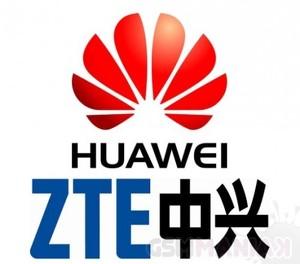China syndromeHouse Intelligence panel investigates Chinese telecom giants
As Chinese telecom giants Huawei Technologies Co. and ZTE Corp continue to eye the lucrative American market, they have come under increasing scrutiny from U.S. lawmakers who fear their technology could be used by Chinese hackers to steal U.S. secrets; the two Chinese companies are now the subject of a House Intelligence Committee investigation aimed at determining whether they are a threat to the United States

Chinese telecom giants are under House investigation // Source: zor.uz
As Chinese telecom giants Huawei Technologies Co. and ZTE Corp continue to eye the lucrative American market, they have come under increasing scrutiny from U.S. lawmakers who fear their technology could be used by Chinese hackers to steal U.S. secrets.
The two Chinese companies are now the subject of a House Intelligence Committee investigation aimed at determining whether they are a threat to the United States.
In a joint statement, Representatives Mike Rogers (R – Alabama), the head of the Intelligence Committee, and Dutch Ruppersberger (D – Maryland), the ranking member, said the Congressional probe will establish if Huawei and ZTE’s American expansion presents “the Chinese government an opportunity for greater foreign espionage.”
“The Chinese are aggressively hacking into our nation’s networks, threatening our critical infrastructure and stealing secrets worth millions of dollars in intellectual property from American companies,” Ruppersberger added. “This jeopardizes our national security and hurts U.S. competitiveness in the world market.”
The investigation comes on the heels of a report, released earlier this month by the Office of the National Counterintelligence Executive, that concluded Chinese and Russian hackers backed by their respective governments were actively stealing U.S. trade and technology secrets to boost their economic development.
“Chinese actors are the world’s most active and persistent perpetrators of economic espionage,” the report said. But despite evidence that attacks originated from China, no specific proof confirmed that the hackers had been sponsored by the Chinese government.
China has vehemently denied that it sponsors hackers and Liu Weimin, a spokesman for China’s Foreign Ministry, insisted that Chinese companies are not involved in espionage and operate “totally on market principles.”
In response to the Congressional probe, Liu said he hopes the United States does not “politicize” economic relations in an effort to benefit the United States.
William Plummer, a U.S. spokesman for Huawei, said the company welcomes “an open and fair investigation.”
“The integrity of our solutions has been proven worldwide,” he added.
Huawei is one of the world’s largest phone-network equipment manufacturers and has deployed its technology in more than 140 countries. The company first established its U.S. headquarters in 2001, but many of its recent efforts to expand into the U.S. market have been blocked by Congress.
In February the Committee on Foreign Investment in the United States forced the company to stop its acquisition of several patents from 3Leaf Systems, a California based company. The committee said the purchases could pose “a serious risk” to U.S. computer networks.
More recently, the Commerce Department prohibited Huawei from participating in the first ever nation-wide test of the emergency broadcast network, which took place earlier this month.
U.S. lawmakers are particularly concerned about the Huawei’s alleged ties to the Chinese military, which the company has denied.
Huawei’s founder Ren Zhengfei is a former Chinese military officer who retired four years before he founded the company in 1988. Ren served as the deputy director of the Science Research Institute of the Engineering Army Corps and the company maintains that he has not had any ties to the military since his retirement.
